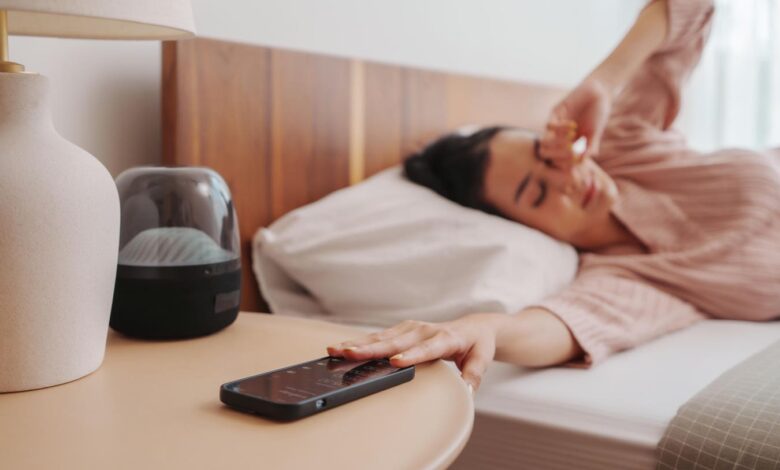Snooze Button Pressed Over 55% Of Time After Sleep, Alarm, Study Says

The use of the snooze button is a common phenomenon among many individuals, with over half (55.6%) of sleep sessions ending with a press of the snooze button, according to a study published in the journal Scientific Reports. Participants in the study tended to hit the snooze button multiple times during a sleep session, averaging 2.4 times for an additional 10.8 minutes of snooze time. This behavior raises the question of whether relying on the snooze button is beneficial or detrimental to one’s overall well-being.
The study analyzed data from 21,222 individuals worldwide using the SleepCycle smartphone app, which functions as an alarm clock with traditional snooze and smart snooze features. Researchers from Brigham and Women’s Hospital and Sleep Cycle conducted the study, excluding sleep sessions less than four hours in duration. This left over 3 million recorded sleep sessions for analysis.
Snooze button usage varied by day of the week, with higher usage on weekdays compared to weekends. Additionally, snooze button activity was influenced by the month of the year, with colder, less daylit months showing increased snooze button presses. Countries also showed slight variations in snooze button use, with Sweden having the highest average snooze button presses and sleep time, while Japan had the lowest.
Interestingly, women were found to use the snooze button more frequently than men, indicating potential differences in sleep habits between genders. However, the study did not delve into the specific reasons behind this discrepancy.
While hitting the snooze button may provide a temporary sense of extended rest, it does not contribute to restful sleep. Sleep consists of distinct stages, including light sleep (Stage 1), deep sleep (Stage 3), and REM sleep (Stage 4), which must be cycled through for optimal restorative effects. Pressing the snooze button typically only leads to shallow sleep, depriving individuals of the deeper stages necessary for true rejuvenation.
Regular use of the snooze button may signal an underlying issue with inadequate sleep duration or quality. Rather than relying on the snooze button, adjusting sleep habits by going to bed earlier or setting a later wake-up time can promote a healthier sleep routine. Ultimately, understanding the implications of snooze button use can help individuals prioritize restful sleep and improve overall well-being.




